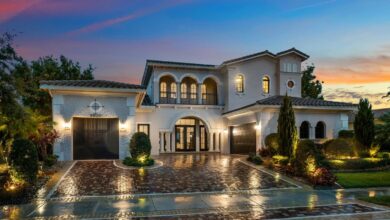Home Houses
When it comes to purchasing a home house, the process can feel overwhelming. Whether you’re a first-time homebuyer or someone looking for a new property, navigating the real estate market requires knowledge, careful planning, and an understanding of current trends. In this comprehensive guide, we will cover everything you need to know about buying a home house, from understanding the various types of properties available to finding the best deals and exploring real-world examples of some of the top homes you can buy.
This guide will also break down the benefits of using various technologies to streamline your home-buying process, explain the step-by-step procedure for buying a home, and highlight essential tips that will help you make informed decisions.
What are Home Houses?
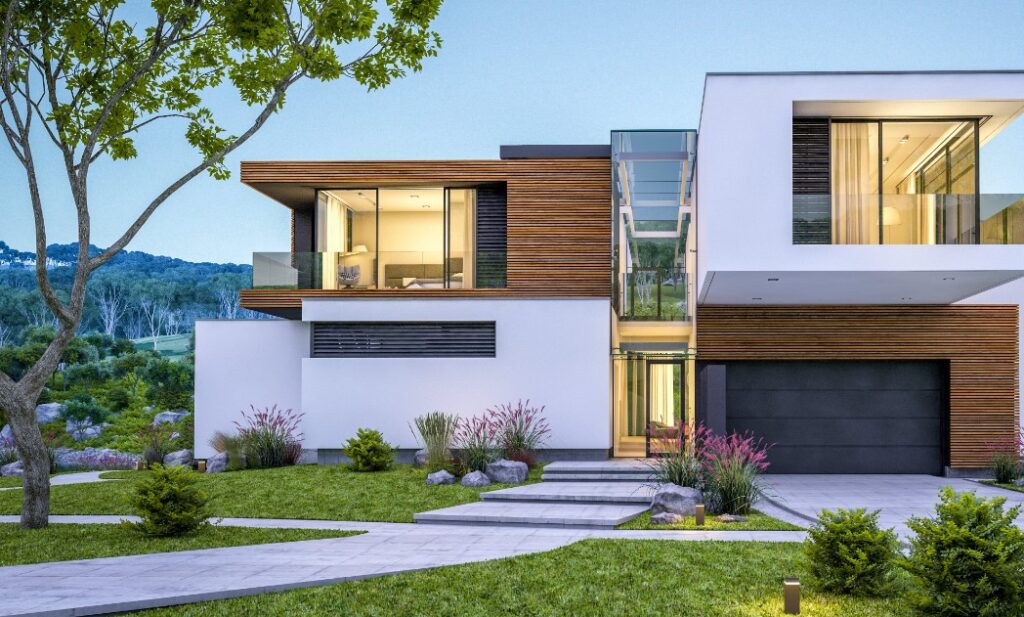
Home houses refer to properties that are designed for residential living. They range from traditional single-family homes to modern townhouses and apartments. A home house is typically an investment in a place where families or individuals live, create memories, and build a future. These properties can vary significantly in price, style, size, and location. Understanding the different types of home houses available is crucial to finding the one that best suits your needs and preferences.
Types of Home Houses You Can Buy
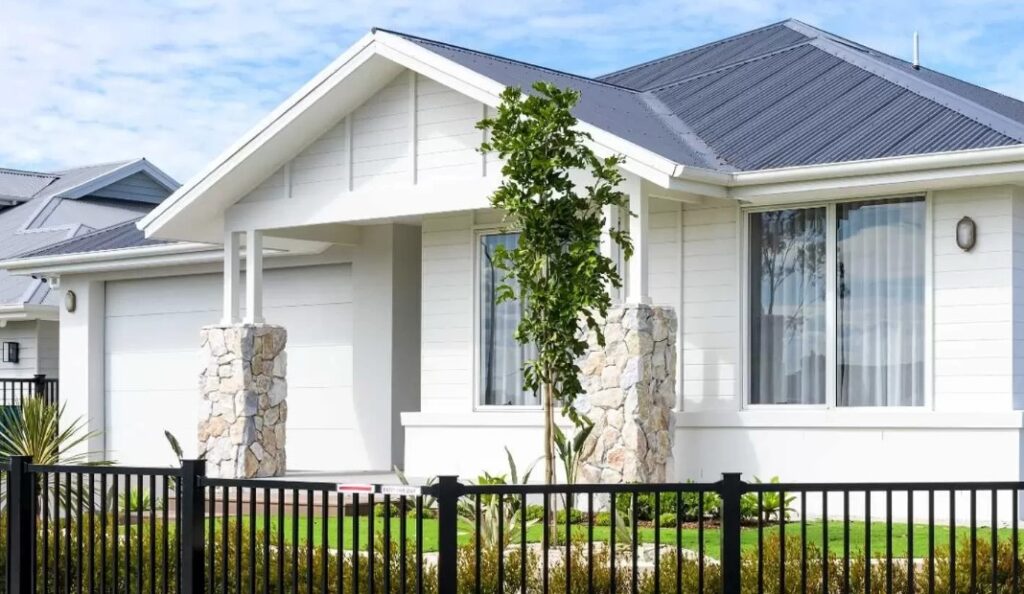
There are several types of homes to consider, each with its own set of advantages and challenges. Here’s an overview of the most common types:
Single-Family Homes
These are standalone properties, providing complete privacy and personal space. Typically, single-family homes come with a yard and are ideal for families. They are one of the most popular choices for homebuyers due to their independence from other residences.
Benefits:
- High privacy
- Often include outdoor space
- Flexible interior design options
Challenges:
- Higher upfront cost
- Maintenance can be time-consuming
Townhouses
Townhouses are homes that are part of a row of similar units, typically sharing one or two walls with neighbors. These homes are often more affordable than single-family homes but still offer a good amount of space and comfort.
Benefits:
- More affordable than single-family homes
- Less maintenance than a traditional home
- Good for urban areas
Challenges:
- Shared walls with neighbors
- Less privacy
Apartments/Condos
Apartments or condominiums are typically smaller than houses and are part of larger buildings. These units often come with shared amenities like gyms, pools, and concierge services.
Benefits:
- Lower cost compared to homes
- Maintenance handled by a management company
- Great for city living
Challenges:
- Limited space
- Shared facilities
Benefits of Buying Home Houses
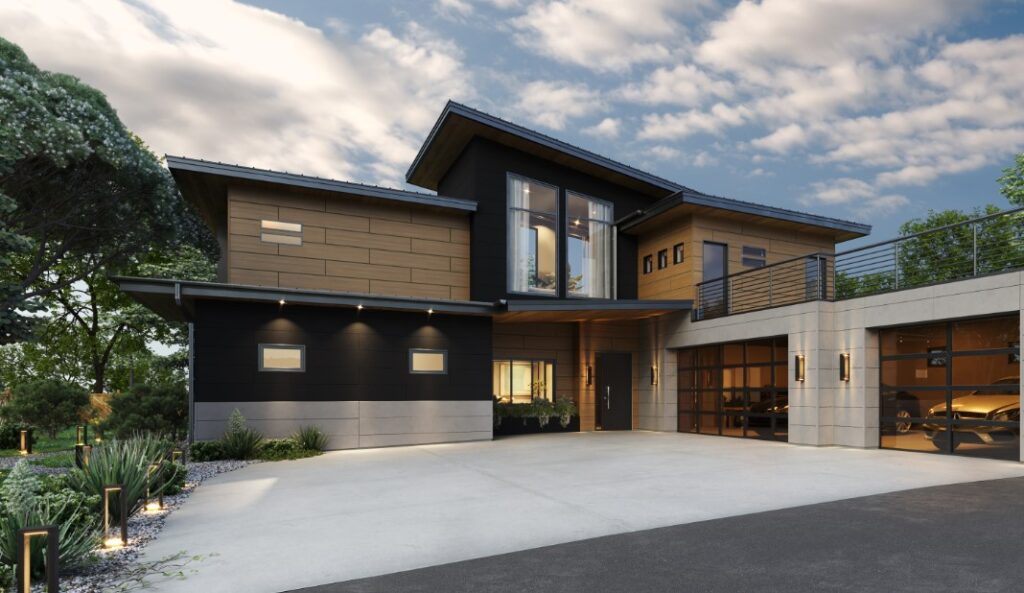
Purchasing a home is often one of the most significant investments a person can make. It represents not only a place to live but also a long-term investment that can provide financial stability, personal freedom, and a sense of security. Here, we will delve deeper into the numerous benefits that come with buying a home house, explaining how homeownership can provide both tangible and intangible advantages.
1. Long-Term Financial Investment
One of the primary reasons people choose to buy homes is the potential for long-term financial gain. Unlike renting, where monthly payments contribute to a landlord’s equity, purchasing a home allows you to build your own wealth through the home’s appreciation in value over time.
- Appreciation of Property Value: Homes tend to appreciate in value over time, especially in desirable locations. While short-term fluctuations in the real estate market can occur, historically, real estate tends to increase in value over decades. This means that by purchasing a home, you are making an investment that will likely result in financial returns when it comes time to sell.
- Equity Building: As you pay down your mortgage, you are essentially building equity—ownership in the property. Each monthly mortgage payment reduces the outstanding loan balance, increasing your ownership stake. Over time, the accumulation of equity can be a valuable asset. If you sell the home, the amount of equity you’ve built can translate into a significant cash return.
- Tax Benefits: Homeownership can also provide financial advantages in the form of tax benefits. In many cases, you can deduct mortgage interest payments and property taxes from your income tax return, reducing your taxable income. These deductions can result in considerable savings, especially in the early years of the mortgage when interest payments make up a larger portion of the payment.
2. Stability and Security
When you own a home, you achieve a level of stability and security that renting simply cannot provide. This stability comes in many forms, offering both personal and financial advantages.
- Protection from Rent Increases: Renting can leave you vulnerable to frequent rent hikes, especially in areas with high demand. When you own a home, your monthly mortgage payment remains relatively predictable, assuming you have a fixed-rate mortgage. This ensures that you won’t face sudden increases in your housing costs, allowing you to plan and budget more effectively.
- Permanent Residence: Homeownership gives you the security of knowing that you won’t be forced to move due to a landlord’s decision to sell or raise rent. You have control over your living situation, allowing you to stay in the same property for as long as you wish, provided you continue to meet your mortgage obligations. This sense of permanence is especially valuable for families with children who want stability in their schooling and social environments.
- Personalized Space: Owning your home means that you have complete control over how it looks and functions. You can renovate, remodel, and adapt the space to fit your personal style and needs. From choosing wall colors to building an outdoor garden or adding an extension, homeownership grants you the freedom to personalize your living space in ways that renting simply does not.
3. Greater Sense of Control and Autonomy
One of the often-overlooked benefits of owning a home is the sense of control it offers. As a homeowner, you have far more autonomy over your living environment compared to renting.
- Freedom to Renovate: As a tenant, any changes you wish to make to your living space are typically subject to your landlord’s approval. However, as a homeowner, you have the freedom to make renovations without needing permission. Whether it’s remodeling a bathroom, adding a new deck, or changing the flooring, you have the liberty to enhance your space as you see fit.
- Control Over Maintenance and Repairs: Renting often involves waiting for a landlord to make necessary repairs, which can sometimes take weeks. As a homeowner, you control the timeline and quality of repairs. If something breaks, you can fix it immediately or choose contractors you trust. Moreover, this allows you to ensure that the repairs and improvements align with your preferences.
- Privacy: Homeownership typically provides more privacy than renting. If you live in an apartment or a shared rental property, your neighbors are often very close, and you may have to deal with shared walls or communal spaces. When you buy a house, especially a detached one, you often enjoy more privacy and fewer disruptions from neighbors.
4. Building Long-Term Wealth
Beyond financial stability, buying a home can also be a key driver of long-term wealth creation. Over the years, as the home’s value appreciates, you have the opportunity to build wealth in several ways:
- Selling for Profit: If you purchase a home at a reasonable price and maintain it well, you can sell it for a profit in the future. This is particularly true in markets where home values are rising steadily. For example, homes in growing urban areas or those near significant infrastructure developments often see a rise in property value, enabling homeowners to sell for significantly more than the purchase price.
- Renting Out Property: In some cases, homeowners choose to rent out part of their home or an entire second property. This provides an additional income stream, which can help pay down the mortgage or be reinvested in other assets. This can be particularly beneficial if you buy a multi-unit property or have an extra room or basement that can be rented out.
- Home as Collateral for Future Investments: Homeownership allows you to leverage your property for additional loans. With the equity you’ve built, you may be able to secure a home equity loan or line of credit, which can then be used to fund further investments, such as home improvements, starting a business, or purchasing additional real estate.
5. Emotional and Psychological Benefits
While the financial benefits of buying a home are often emphasized, the emotional and psychological advantages of homeownership are equally important.
- Pride of Ownership: Owning a home can give you a deep sense of pride and accomplishment. It represents the fulfillment of a significant personal goal, and for many people, it’s a symbol of financial success and stability. The pride of ownership also enhances your connection to your community and your home.
- Stability for Family Life: For families, buying a home can provide a stable environment in which to raise children. Owning a home allows you to create a nurturing, secure environment with long-term plans in place. This stability can contribute to a sense of belonging, which is essential for children’s emotional development.
- Freedom to Personalize Your Living Environment: Homeownership is not just about financial gain—it’s about creating a space that feels like your own. This sense of ownership extends beyond the physical structure; it’s also about creating a place where you feel truly at home. You can decorate according to your tastes, build a backyard paradise, or simply enjoy the peace of knowing that the space is yours to enjoy as you wish.
6. Potential for Rental Income
If you are purchasing a larger property, a home with multiple units, or have additional space, there’s the potential for rental income. Many homeowners use their property as an income-generating asset by renting out part of their home or converting part of their property into a rental unit.
This is especially attractive for individuals who may want to live in one part of the house while renting out the other, helping to offset their mortgage payments or even providing a profitable income stream.
Real-World Examples of Home Houses for Sale in 2024
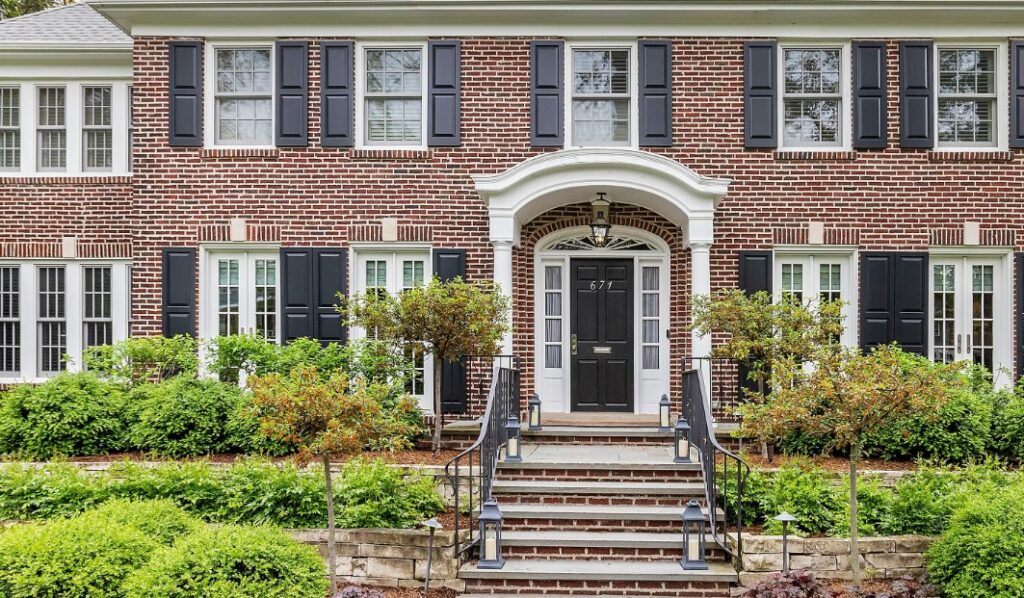
Now let’s explore some real-world examples of home houses available for purchase in 2024. These examples include a variety of house types, locations, and price ranges.
1. Modern Family Home in Los Angeles
This stunning 4-bedroom, 3-bathroom single-family home in Los Angeles offers everything a family needs. The property features a spacious living area, state-of-the-art kitchen, and a large backyard perfect for kids and pets. Located in a family-friendly neighborhood, it is close to schools and parks.
Price: $1,200,000
Features:
- 2,500 square feet of living space
- Smart home technology (security, lighting, and climate control)
- Eco-friendly construction materials
Pros:
- Ideal for families
- Large backyard
- Close to schools and parks
Cons:
- High upfront cost
- Requires ongoing maintenance
2. Cozy Townhouse in New York City
This 2-bedroom, 1.5-bathroom townhouse is located in a desirable neighborhood in New York City. It is perfect for individuals or couples who want to experience city life. The property comes with a modern design, a small garden, and a cozy living room with great views of the city skyline.
Price: $650,000
Features:
- 1,200 square feet of living space
- Urban lifestyle convenience
- Access to public transportation
Pros:
- Affordable for city living
- Modern design with great views
- Low maintenance
Cons:
- Limited outdoor space
- Higher property taxes
3. Luxury Condo in Miami
This luxurious 3-bedroom, 2-bathroom condo in Miami offers exceptional views of the ocean. The condo features floor-to-ceiling windows, an open-concept living space, and access to world-class amenities such as a pool, gym, and concierge services.
Price: $1,500,000
Features:
- 2,000 square feet of living space
- Oceanfront property
- Full access to luxury amenities
Pros:
- Prime location near the beach
- Stunning views
- High-end amenities
Cons:
- Expensive
- Limited privacy due to shared facilities
How to Buy Home Houses: The Process

The process of buying a home house involves several key steps that every homebuyer should be aware of to ensure they are making a sound investment.
Step 1: Research and Budgeting
Before purchasing a home, it is crucial to establish a clear budget and conduct thorough research on available homes. This includes evaluating locations, considering property features, and checking market trends.
Step 2: Get Pre-Approved for a Mortgage
Getting pre-approved for a mortgage is one of the most important steps. It gives you a clear understanding of how much you can afford and allows you to make competitive offers when you find the right home.
Step 3: View Homes and Negotiate
Once you’ve secured financing, it’s time to view homes that meet your needs. Take your time visiting different properties, and don’t hesitate to negotiate the price with the seller.
Step 4: Finalizing the Purchase
Once you’ve found the home you want, you’ll enter into a formal contract, conduct a home inspection, and finalize the financing to officially close on the property.
FAQ
1. What is the best type of home to buy for a first-time homebuyer?
For first-time buyers, a townhouse or condo can be a great option because of their lower cost and minimal maintenance. It allows you to get your foot in the door of homeownership without the burden of a large yard or extensive upkeep.
2. How do I know if I can afford a home?
To determine affordability, assess your income, savings, and monthly expenses. Use a mortgage calculator to estimate your monthly payments and consider getting pre-approved for a mortgage to understand your borrowing capacity.
3. What is the average price of a home in the U.S. in 2024?
The average price of a home in the U.S. varies depending on the location. In 2024, the national median home price is estimated at around $400,000. Prices tend to be higher in urban areas and lower in rural locations.
Buying a home house is one of the most significant financial decisions you’ll make in your lifetime. By understanding the various types of homes, the benefits of homeownership, and the steps involved in purchasing a property, you can confidently move forward in your journey to finding the perfect home. Make sure to research thoroughly, set a budget, and seek expert guidance as needed to make informed choices and find the best deal for your needs.






